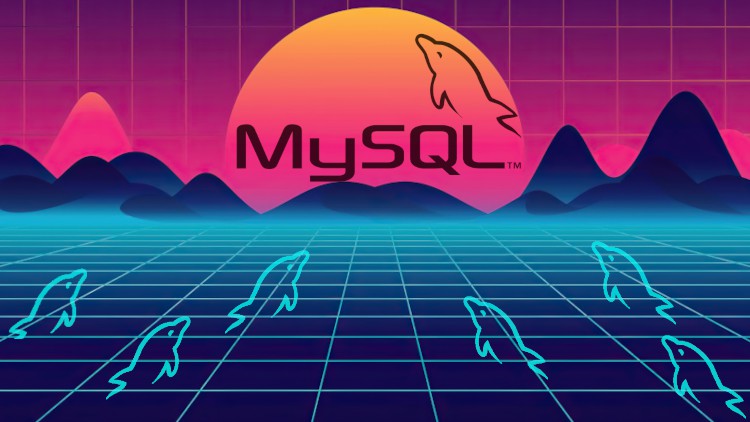
Learn SQL with MySQL Workbench from zero. Great match for beginners in SQL, coders with any experience or Data Analytics
What you will learn
Create database or interact with existing databases with SQL
Learn and use: Normal forms, Datatypes, Charset and Collation
Write complex SQL queries across multiple tables with UNION and JOIN
Solve hands-on assignments and real-world use cases
Description
Welcome to this MySQL course! I want to start by appreciating you for trying to learn a new skill. MySQL is one of the most popular SQL databases.
What is MySQL?
MySQL is currently the most popular database management system software. Its uses for managing relational databases. It’s open-source DB software. MySQL support by Oracle Company. It is a fast, scalable, and easy-to-use database management system compared with Microsoft SQL Server or Oracle Database.
MySQL supports many Operating Systems like Windows, Linux, macOS, etc.
We’ll work with the test database of employees. Let’s learn about the data structure and types of this schema. Learn how to create an EER diagram with the schema of the data and export it into a ready-to-use SQL file.
In this course, you will:
- Learn the main branches of SQL syntax
- Work with the MySQL Workbench
- Design the EER schemas and implement complex databases
- Use Datatypes, Keys, Charset and Collation
- Analyze data using Aggregate Functions
- Build CRUD operations – INSERT, SELECT, UPDATE, DELETE
- Learn and use SQL joins
- And more!
I think that RDBMS is one of the crucial skills in Computer Science and would help you in Computer Programming. Working with the data as a professional is a constant tool that won’t change over time. If you learn SQL ones, this will be yours, forever, anytime, anywhere.
What Jobs Require Knowledge of SQL?
- Data Analytics
- Product Analytics
- Data Scientist
- Backend or Database Engineer
- SQL Server Database Administrator
- Senior Web or Application Developer
- MySQL Database Administrator
- PHP Developer
- NodeJS Developer
- Lead Software Engineer
- Full Stack Engineer/Developer
Content